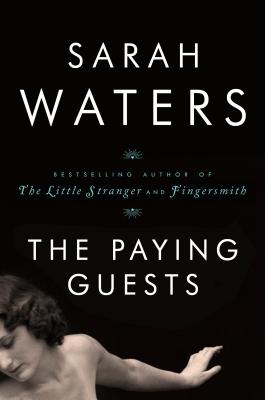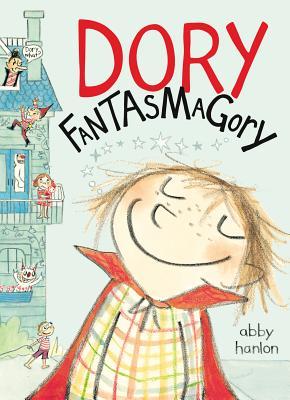I was at a party over the weekend and several people were talking about Sarah Waters’ book The Paying Guests. Everyone loved it (if you haven’t read it yet, go get it and prepare to get lost for a few days reading) and we all spoke about parts of the book we loved when my friend Hillary just started laughing. The book isn’t a comedy, by any stretch of the imagination. I asked her what was so funny and never expected her response.
It seems Hillary read the back of the book prior to starting it. Here’s where the funny comes in. The  back of the book has blurbs for all her other books. Hillary read only the review for The Little Stranger, which is a ghost story. She started her reading with that overlay in mind. “I’m a reading a ghost story,” Hillary thought as she started The Paying Guests. Well, not so much. But here’s the really interesting thing: she read through the entire first part of the book (almost 200 pages) expecting a ghost story, so she kept finding one. In her mind she could very easily see how the rundown house could become a gothic haunting. How perhaps every creak on the stairs was a deceased brother coming back to give a message to his sister. Of course, she didn’t share this at the time, she just kept that to herself silently wondering when the ghost was going to reveal him or herself. This made for an unsatisfying read because the thing she kept wanting, ghosts or supernatural occurrences, never happened.
back of the book has blurbs for all her other books. Hillary read only the review for The Little Stranger, which is a ghost story. She started her reading with that overlay in mind. “I’m a reading a ghost story,” Hillary thought as she started The Paying Guests. Well, not so much. But here’s the really interesting thing: she read through the entire first part of the book (almost 200 pages) expecting a ghost story, so she kept finding one. In her mind she could very easily see how the rundown house could become a gothic haunting. How perhaps every creak on the stairs was a deceased brother coming back to give a message to his sister. Of course, she didn’t share this at the time, she just kept that to herself silently wondering when the ghost was going to reveal him or herself. This made for an unsatisfying read because the thing she kept wanting, ghosts or supernatural occurrences, never happened.
It was until she got to the end of the first part and the two women became lovers that she realized, “Oh, this is a love story, not a ghost story!” Needless to say, when she shared this at the party all of were laughing very, very hard. This brought up a very interesting discussion about how what we think a book is going to be can be at odds with what the book actually is. And then this got me thinking about how I talk about books with kids. Am I saying too much about the book? Am I focusing on one thing and sacrificing other information that might for a better reading experience?
Kids are very good at reading the blurbs on the jackets, and most kids’ books don’t have reviews of other books on the back, but still it got me thinking about what we say about books before people start reading them and does that color the reading experience. In some cases, clearly, that’s an issue, but in others it’s not. I think the less I know about a book, the better off I am, because sometimes I latch onto a detail or idea about the book and spend my time as a reader looking for that detail, just as Hillary was looking for ghosts.
So readers, I’m curious: how much do you like to know about a book before you start reading it?
Monthly Archives: January 2015
The Stars of 2014: Final Round-Up
Elizabeth Bluemle - January 8, 2015
Well, chickadees, here it is: the final tally of starred reviews for youth literature for 2014 from the following sources: Booklist, The Bulletin of the Center for Children’s Books, The Horn Book, Kirkus Reviews, Publishers Weekly, and School Library Journal. This year, 868 books received 1458 stars from these esteemed review sources.
This is an insanely detail-laden process, and as careful as I try to be, there may be oversights here and there. If you want the cleanest version of this list, check back in a week or two, when I’ll have been alerted to anything that needs fixing. Publishers, if my star count for individual titles doesn’t match yours, please send an email to me at ebluemle at publishersweekly.com, listing the title and the review sources with dates. Many thanks!
My hope is that this list will help readers find fine books they may have overlooked, and of course to place large monetary bets on the upcoming youth award announcements. (Kidding! But speaking of which, the ALA Youth Media Awards—Newbery, Caldecott, King, Printz, Sibert, Geisel, and many many others—will be announced on February 2, 2015, beginning at 8 a.m. in Chicago, and livestreamed here.)
One note I feel strongly about: critical acclaim doesn’t always align with child appeal, so I would urge parents, librarians, booksellers, and teachers not to overlook titles without stars. Sometimes, books beloved by children don’t receive a single starred review, but still enrich and enchant their lives. The one thing I hope this project doesn’t do is encourage people to bypass titles worth considering that somehow have escaped reviewer attention. If you have some examples of books you’ve truly loved from this year that didn’t receive stars, please post them in the comments below. Caveat: no self-promotion (or promoting a friend, loved one, client, etc.)! Thanks.
And — if you’re willing to share, it would be great to know what your role in the book world is and how you use this list.
Happy reading!
SIX STARS
Brown Girl Dreaming. Jacqueline Woodson. Penguin/Paulsen, $16.99
Family Romanov, The: Murder, Rebellion, and the Fall of Imperial Russia. Candace Fleming. Random House, $18.99
Glory O’Brien’s History of the Future. A.S. King. Little, Brown, $18
This One Summer. Mariko Tamaki, illus. by Jillian Tamaki. First Second, $21.99 hc, $17.99 pb
Continue reading
An Interview with the Year 2015
Kenny Brechner - January 6, 2015
 Another Year walks among us now and I am pleased to offer her insights into what lays ahead in this exclusive interview!
Another Year walks among us now and I am pleased to offer her insights into what lays ahead in this exclusive interview!
Kenny: Thank you so much for taking the time to speak with us.
The Year 2015: Don’t be silly. It’s my pleasure, Kenny.
Kenny: I’m curious about your portrait. You appear to have just received some profoundly good news. Had you just heard about your appointment as the Year 2015 from The Council of Years?
The Year 2015: That was a grand moment too, but the scene captured in my portrait occurred last week, when I received the letter back from the Upper Council concerning the Damocles Edict. I was so pleased!
Kenny: Hold on a moment. I’m a bit out to sea. The Upper Council? The Damocles Edict?
The Year 2015: Well, Kenny, the Council of Years is a subcommittee which operates under the aegis of The Upper Council. When a new Year is appointed one of our first tasks pertains to making a submission regarding the Damocles Edict, which is then reviewed by the Upper Council.
Kenny: I see. Can you tell us about this Damocles Edict? I mean, I’m familiar with his sword and all.
The Year 2015: Yes, it is the same idea but on rather a larger scale. Actually, you may not want to know about this.
Kenny: I think I do.
 The Year 2015: Hmmm. Well, many members of the Upper Council take rather a dim view of humanity. An edict for your destruction was passed in the Year 1520. However the incoming Year 1521 made a case on humanity’s behalf and the edict was revised so that each incoming year must submit one human artistic production made during the current year to The Upper Council. The chosen production should be of such a character as to show humanity’s ability to both perceive what is of fundamental importance and to work toward attaining it. Humanity was given an abeyance of ten years by The Upper Council. If the annual submission is not deemed worthy the number of years until destruction is then reduced by one. If the submission is particularly strong the Council will sometimes raise the counter back upward!
The Year 2015: Hmmm. Well, many members of the Upper Council take rather a dim view of humanity. An edict for your destruction was passed in the Year 1520. However the incoming Year 1521 made a case on humanity’s behalf and the edict was revised so that each incoming year must submit one human artistic production made during the current year to The Upper Council. The chosen production should be of such a character as to show humanity’s ability to both perceive what is of fundamental importance and to work toward attaining it. Humanity was given an abeyance of ten years by The Upper Council. If the annual submission is not deemed worthy the number of years until destruction is then reduced by one. If the submission is particularly strong the Council will sometimes raise the counter back upward!
Kenny: Unbelievable. That’s terrifying.
The Year 2015: Yes, you can see why the edict was renamed The Damocles Edict. In any case my submission was of particular importance as the number was down to one.
 Kenny: *Gasp*. I guess the fact that we are holding this conversation indicates that you chose well. What did you send the council?
Kenny: *Gasp*. I guess the fact that we are holding this conversation indicates that you chose well. What did you send the council?
The Year 2015: I sent them a copy of Dory Fantasmagory. They absolutely loved it and raised the number all the way back up to 10! Unprecedented!
Kenny: Phew. Well spotted! It is a sensational and wonderful book, and I can certainly see how it would save humanity from extinction. Can you share with us some of the other books written last year that you considered submitting?
The Year 2015: Sure! First of all, bear in mind that books which essentially explore and describe the fallibility and quandaries of humanity, however poignantly, do not make for wise submissions to the Upper Council. Hence such books as All The Light We Cannot See, Colorless Tsukuru Tazaki, or Deep Down Dark, regardless of their excellence, are not quite the thing here.
 Kenny: Point noted. Though I would think that lines like this one from Deep Down Dark, “The mine is like him: flawed and neglected but worthy of respect and love,” might be persuasive.
Kenny: Point noted. Though I would think that lines like this one from Deep Down Dark, “The mine is like him: flawed and neglected but worthy of respect and love,” might be persuasive.
The Year 2015: That is a marvelous passage, but the Upper Council would have found it to be affirming of their prejudices rather than redemptive. All right then. Two books I did give a great deal of consideration to were The Glass Sentence and The Magician’s Land. Maintaining personal integrity amidst a fractured world, the ability to grow and be strengthened by gnosis, to achieve responsibility and unfettered atonement seemed fruitful to me. I would have felt confident submitting them to the council. Two others I gave thought to were Vanilla Ice Cream, and Julia’s House for Lost Creatures. Those are both books which I felt would have turned the Council’s thoughts in a constructive direction.
Kenny: One last question. If your submission had failed and the Damocles Edict had fallen, would you have died or ceased to be along with humanity?
The Year 2015: No, but I would have been out of a job.
Kenny: Gotcha. Thanks so much, both for taking the time for this interview, and for saving humanity.
The Year 2015: It was my pleasure on both counts, Kenny.
How to Turn Kids into Readers
Josie Leavitt - January 5, 2015
As the first week of the new retail year begins today, I had some thoughts/wishes for the year. There are always conversations that occur at the bookstore that make me realize helping children become readers is hard work. Not just teaching kids how to read, but creating patterns where books are vital to their lives. I realized that there is a lot of shame with reading and our job as booksellers is to mitigate that shame with joy. Continue reading
The Oddest Week of the Year
Kenny Brechner - January 2, 2015
 If Friedrich Hegel had been a modern-day independent bookseller, the period between Christmas and New Year’s would have been his favorite time period. It is the most dialectical week of the year, I mean to say. Consider the sudden extinction of momentum, followed by the retrograde motion of reflection and exhaustion arcing back around and then upward toward restoration and re-invigoration. Consider also the spiraling vortexes of inventory taking and replenishment, alongside the retrograde action of accounting and tax preparation. It’s Reason in History made flesh, and I’m certain Hegel would have loved it. Speaking for myself, I cannot claim to be so lofty. I find it to be the oddest, most disorienting week of the year. That being so I sought some guidance from Friedrich Hegel himself.
If Friedrich Hegel had been a modern-day independent bookseller, the period between Christmas and New Year’s would have been his favorite time period. It is the most dialectical week of the year, I mean to say. Consider the sudden extinction of momentum, followed by the retrograde motion of reflection and exhaustion arcing back around and then upward toward restoration and re-invigoration. Consider also the spiraling vortexes of inventory taking and replenishment, alongside the retrograde action of accounting and tax preparation. It’s Reason in History made flesh, and I’m certain Hegel would have loved it. Speaking for myself, I cannot claim to be so lofty. I find it to be the oddest, most disorienting week of the year. That being so I sought some guidance from Friedrich Hegel himself.
Brechner: One thing I wonder about is whether to bring Plenty More back in with numbers. Normally cookbooks don’t sell much outside the fourth quarter but that one is just so exceptional.
Hegel: Oh indeed. I think you should. Eating vegetables is hardly a seasonal event, and the book’s novel organization, aligned with its stunning graphics, give it every indication of being a world historical cookbook.
Brechner: Thanks. Was there any strong seller this season that you do think was very holiday-specific despite not having an overt holiday theme?
 Hegel: This may be hard for you to hear but I’m going to speak of Crap Taxidermy. I know you did wonders with it but with the holiday season gone by it will go back to being a fun thing to flip through at the store and cease to be the perfect gift for anyone with a sense of humor.
Hegel: This may be hard for you to hear but I’m going to speak of Crap Taxidermy. I know you did wonders with it but with the holiday season gone by it will go back to being a fun thing to flip through at the store and cease to be the perfect gift for anyone with a sense of humor.
Brechner: I hear you. But what about the bigger picture, that subtle sense of transition, of the store’s identity shedding a skin and needing to be slightly reinvented at the very moment one feels most inclined to coast and preserve its culminating annual moment? How does one embrace the annual mundane year-end pressures when one is least disposed to them?
Hegel:I can understand your sentiments, but movement has no sentiment. And whether you direct it or are simply subject to it is your province. But think, does the helmsman ride the storm only to run upon a reef in calm waters the next day due to inattention?
Brechner: Good point. Well, thanks for sharing your perspective with us.
Hegel: Not at all. And do bear in mind, as you move forward, that our epoch is a birth-time, and a period of transition. The spirit of man has broken with the old order of things hitherto prevailing, and with the old ways of thinking, and is in the mind to let them all sink into the depths of the past and to set about its own transformation. A very happy New Year to all of you.
